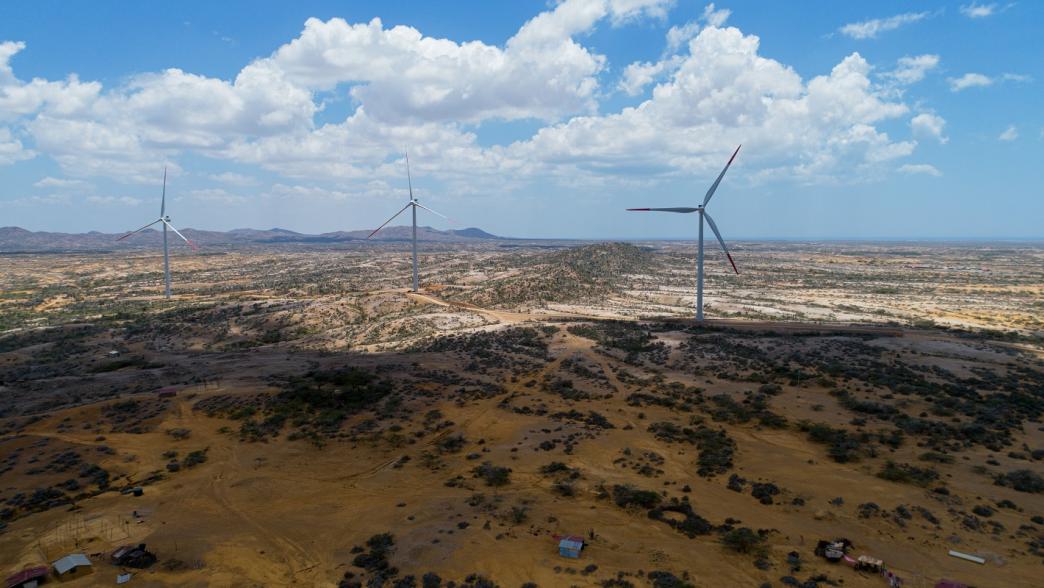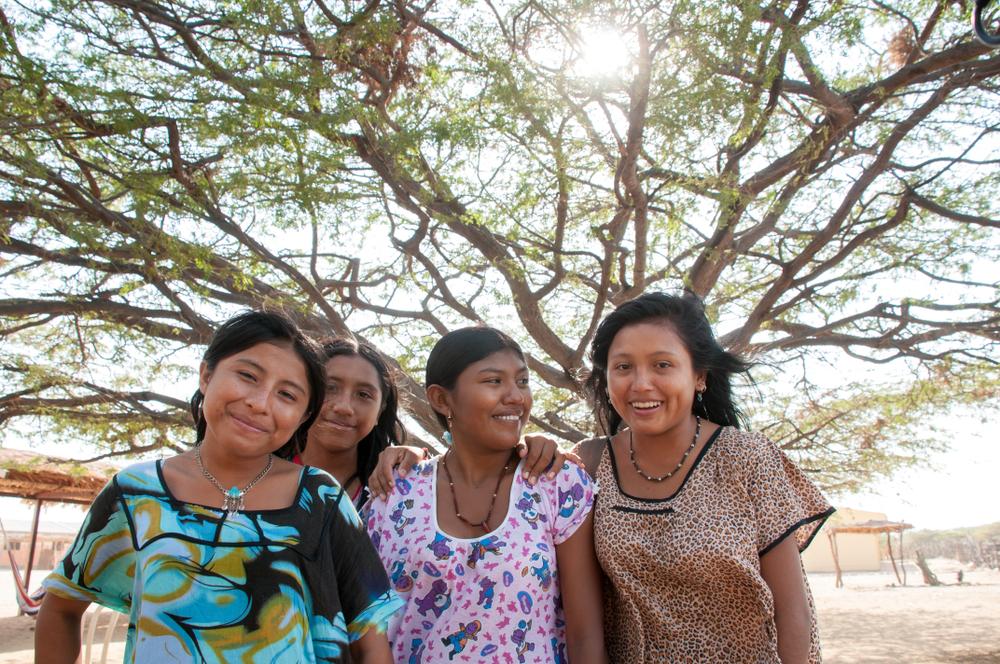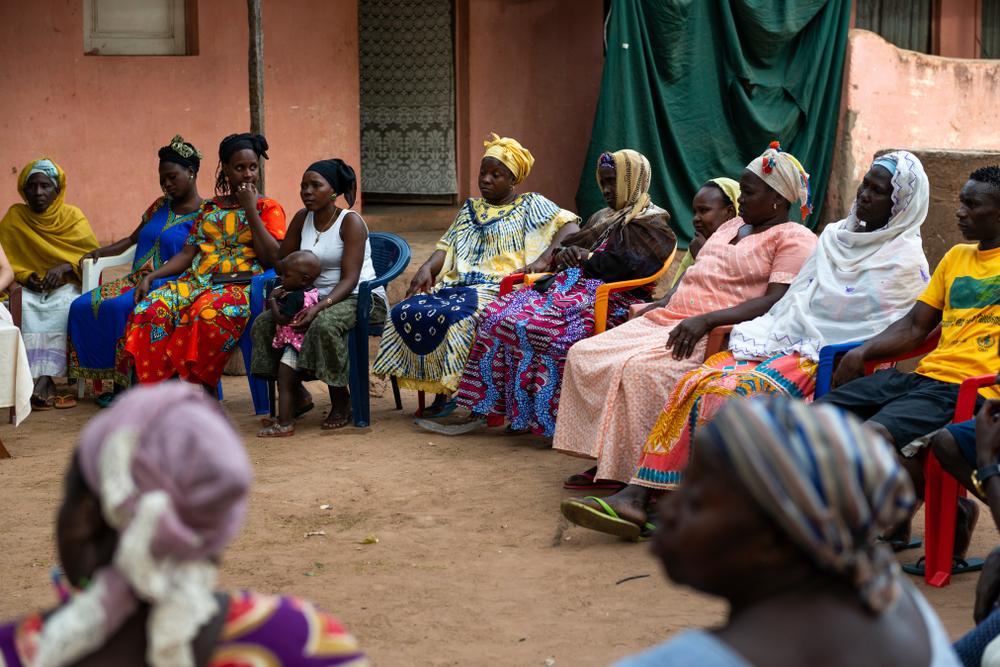
A Just Energy Transition Must Involve and Empower Women
This encounter was a stark reminder that in the quest to fight climate change and promote clean energies, we risk undermining women’s rights, unwittingly introducing new or reinforcing existing inequities. But these risks can be mitigated.
A just transition that empowers women and respects their rights is possible. To attain this crucial outcome, members of the international community, donors, private and public sector actors, and civil society organizations like ours must decisively commit to enabling, supporting and learning from women-led organizations and many others already building this inclusive pathway.
Women are essential allies and key agents in fostering an inclusive energy transition; one study concluded that when women are politically empowered, CO2 emissions were reduced by about 12 percent across 72 countries.
At NRGI we seek to learn from and contribute to the efforts led by numerous organizations and individuals around the world, and define a feminist agenda for our energy transition work. We want to ensure that the lived experience of women informs extractive sector decisions concerning future opportunities and harm elimination, and that women have voice and influence in these debates. We are prioritizing developing approaches to increase gender awareness in our programming in countries that need to transition out of fossil fuels, or that aim to scale up renewable energy technologies and the minerals needed as inputs to them. Ultimately, we want to ensure that women are part of every stage of these processes.
We want to ensure that the lived experience of women informs extractive sector decisions concerning future opportunities and harm elimination, and that women have voice and influence in these debates.
In fossil fuel-producing countries, a just energy transition requires that workers are compensated by those governments and companies who benefited from and are now phasing down coal and oil extraction. But, because men account for more than 83 percent of the formal workforce in mining, women—who depend heavily on indirect and informal jobs around the mine—risk not being included in those compensation arrangements. As company executives and government officials think about mine closure, compensation and job reconversion, they must ensure women are key stakeholders in these plans, as APEC has proposed. Environmental liabilities that these projects leave behind and that might disproportionaly affect women need to be considered. In addition, women need to inform decisions about the diversification of local and national economies. Development models that replace the extraction of fossil fuels must align with women’s needs, consumption patterns, and their visions for their land; models must also fully recognize and properly compensate women for their contributions.
As company executives and government officials think about mine closure, compensation and job reconversion, they must ensure women are key stakeholders in these plans.
On the other side of the energy transition, women hold 32 percent of jobs in the renewables sector; however they are not the main owners of small-scale clean energy projects. Given that globally women's labour force share (48 percent) is higher than the average employment rate in the oil and gas sectors (22 percent), government officials and companies have an opportunity to increase employment options in this area. By recognizing property rights and ensuring that benefit sharing mechanisms reflect women’s needs, governmental agencies and international and local development agencies can support women to take up roles such as clean energy entrepreneurs or contribute to consultations about large scale projects.
Government authorities and mining companies can enhance gender justice by changing the way transition minerals are extracted. Today, many women in the Democratic Republic of the Congo are part of the informal workforce extracting the cobalt that goes into the profitable business of electric vehicle batteries. Yet, they often hold the least profitable and most toxic jobs—crushing, sorting and sifting the mineral and processing the waste. Many suffer sexual violence in mining sites. Gender impact assessments are a key step to avoid such harms, provided mining companies act upon them and that women are part of decision-making processes. Defining appropriate policies and implementing them at international, national and local levels is another key step. In 2019, for instance, Mongolia’s government introduced a law aimed at raising women’s participation in the mining sector. As NRGI highlighted in a 2022 video project, Mongolian women played a crucial role in informing this policy and spreading awareness within mining-affected communities.
At NRGI we recognize, and applaud, the efforts made by feminist activists around the world to promote gender justice. We seek to learn from and build on this work, starting with pilot interventions in Colombia, Ghana, Nigeria and Uganda, which will include multistakeholder dialogues, building networks and supporting the work of national women-led organizations to empower women’s voices. Promoting equity has always been the core of our mission and, together with partners, we have contributed to key projects around gender and extractives. In 2023, we are taking this commitment to our newest areas of work. We are excited and committed to identifying our contribution to the important work of advancing equity in the energy transition. We will develop guidance for our teams to mainstream gender across our energy transition programs, and deepen old and new partnerships that allow us to be impactful.
The authors wish to thank the members of NRGI's gender working group for their contributions.
Gender justice and the energy transition
NRGI colleagues share why the energy transition must include women as key agents of change.
Authors

Ana Carolina González Espinosa
Senior Director for Programs

Suneeta Kaimal
President and Chief Executive Officer

Emma Dahmani
Program and Administrative Associate

Phesheya Nxumalo
Program Assistant


